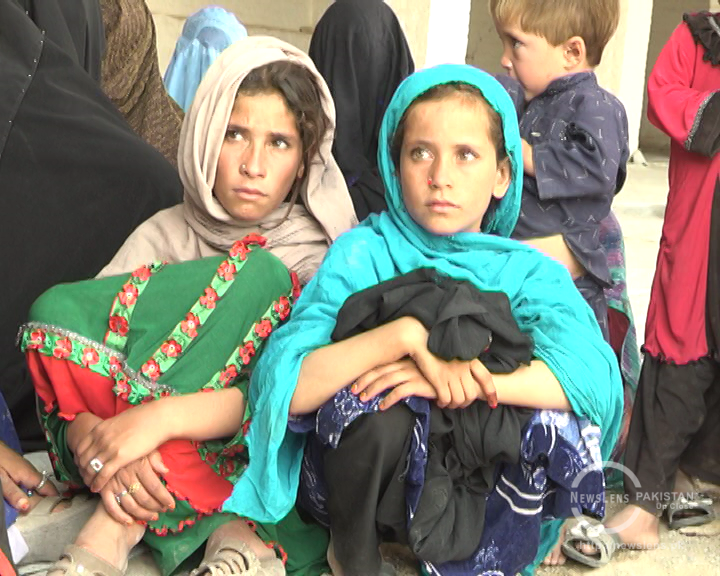
Peshawar: Mirwais Khan, a soft-spoken young man of Pashto dialect, does not shiver or turns pale when sees a police vehicle in the street where he runs his shop. A few weeks ago, he would try to stay in his shop when police would patrol in his area.
Mirwais now has two more years to stay in Pakistan as Pakistan, Afghanistan and UNHCR officials have decided to extend Afghan refugees’ stay in Pakistan.
More than 1.6 million Afghan Refugees are registered with UNHCR and most of them have settled in Khyber Pakhtunkhwa, FATA and Balochistan.
Abdul Qadir Baloch, Pakistan’s Minister of State for Frontier Regions (SAFRON), after a tripartite meeting with the Government of Afghanistan and UNHCR in Kabul, announced that Government of Pakistan would extend refugee cards for Afghans, known as proof of registration (PoR) cards, for two years.
UNHCR welcomes Pakistan’s renewal of its commitment to providing protection and safety for over 1.6 million registered Afghan refugees, said UNHCR spokesperson Adrian Edwards through a statement.
Like Mirwais, thousands of young Afghans run different shops from vegetables to general stores, cobblers, barber, bakers, dairy product shops on the streets of Khyber Pakhtunkhwa as the majority of the refugees is settled in KP.
“Rabbani Street” on Arbab Road is named after the then Afghan Prime Minister and Mujahideen Leader (slain) Prof Burhanuddin Rabbani, who led one of the Afghan Mujahideen faction against Soviet forces, says Pirzada Fawad ur Rehman, a human rights activist while talking to News Lens Pakistan.
“Even, children of a hard-line Afghan leader Gulbaddin Hekmatyar live in Peshawar and visit universities and colleges to address to political gatherings.”
Mirwais, handling customers at his shop, told News Lens Pakistan, “I have born here in Peshawar, I grew up, studied from primary to middle and then switched to business because I was the only one to earn for my family.” He said that he was tense due to the government’s decision to send Afghan refugees back to Afghanistan. “I cannot settle my business in Jalalabad (his ancestral province in Afghanistan) the way I run it here in Peshawar; thank God we got another two years to stay in Pakistan.”
Aimal Khan, 16, is unable to continue his studies as a high school student in Pakistan because his parents are not having Pakistani Computerized National Identity Cards (Citizenship Cards). “We have only one or two seats, reserved of refugees, in universities, therefore, most of the refugee students cannot get admission in public institutions. They either got to private schools or start businesses,” said Ajmal.
Some of the Afghan Refugees had registered themselves as Pakistani citizens when it used to be the older version of National Identity Card or Citizenship card. Many of them even processed and got their CNICs, but after the deadliest attack on Army Public School, Peshawar by Tehreek Taliban Pakistan, that killed more than 132 students, Pakistan changed its policy toward the Afghan Refugees living in Pakistan. A crackdown started and National Database Registration Authority blocked over 100000 CNICs of Afghan refugees.
An official of UNHCR Qaiser Khan Afridi says, “So far around 3.9 million Afghan refugees have gone back to Afghanistan since 2002. Pakistan remains home to some 1.5 million Afghan refugees which is the world’s largest protracted refugee population.”
“In addition to the registered refugee population, the Government of Pakistan estimates that another one million Afghans illegally reside in the country,” said Afridi in his interview with News Lens Pakistan.
He said that the unregistered Afghans do not enjoy any protected status in Pakistan. “UNHCR’s mandate does also not cover this population. However, individuals who claim to be at risk of human rights violations in case of their return to Afghanistan should be provided access to the Refugee Status Determination Procedure carried out by UNHCR under its mandate,” Afridi added.
Security forces conducted several raids in KP, Balochistan and Sindh provinces and arrested hundreds of Afghans for not having CNICs and many of them were deported to Afghanistan under Foreign Act of Pakistan.
“Afghan Refugees live in Pakistan under International Law and UN conventions; torturing them is illegal,” says Abdul Majeed Khan, a member of Provincial Assembly of Balochistan.
“Pashtun and Afghans are the same nation; now pushing Pashtuns to the wall by blocking their CNICs means Pakistan is not accepting their citizenship,” said Mahmood Khan Achakzai, a senior politician.
He said Pakistan is a federation of nations, Pashtun, Baloch, Sindhi, and Punjabi therefore Pashtun have right to run their business, buy property, get education wherever he/she want across Pakistan.
Sanna Ejaz Khan, a social and human rights activist in Peshawar, said, “Disturbing Afghan refugees for the only reason of militancy is for mounting pressure on the Afghan government.”
Afghans would never stay for a second in Pakistan, once peace is restored in Afghanistan, Nasir Nangyal a Balochistan based MPhil student said.



